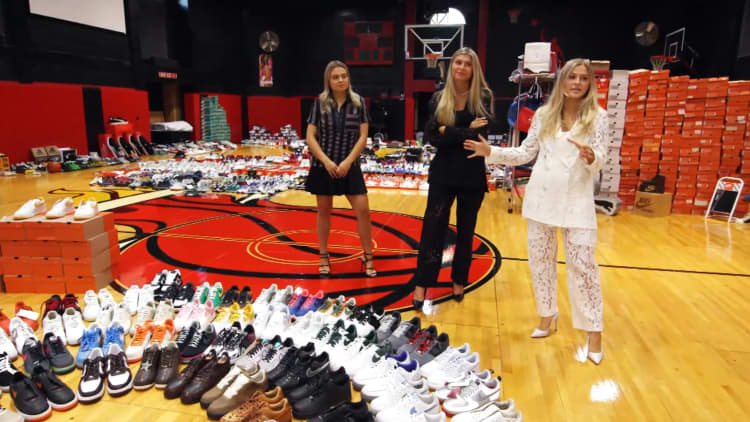For many sports fans, the Covid-19 pandemic has created quite a void. After months of cancellations due to the virus, teams are finally resuming play, albeit with very different conditions.
The NBA started scrimmages inside a carefully controlled "bubble" at Walt Disney World Resort in Orlando on Tuesday. Major League Baseball's opening day is Wednesday, with new rules like no spitting and extra innings to allow for more physical distance. And soccer leagues in Germany and England have resumed play with crowd noise piped into empty stadiums.
But sports fandom is about more than just entertainment. It can boost your self-esteem and make you happier — and you don't have to root for the winning team to reap the benefits.
Being a sports fan is a "very psychologically healthy activity," says Daniel Wann, professor at Murray State University whose research program centers on the psychology of sport fandom. Fandom connects us to other like-minded people, which satisfies our human need for belonging, he says.
These relationships are significant: People who identify as sports fans have higher levels of self-esteem, lower levels of loneliness and tend to be more satisfied with their lives compared to those who aren't interested in sports, Wann says. Fans tend to have more access to social support, help and resources as well. Research suggests that when people have support from their communities, they have better health.
Beyond bonding, fans get to enjoy the psychological benefits of winning, even if they have nothing to do with the players or games, says Stephen Reysen, associate professor at Texas A&M University-Commerce who studies identity and fandom.
"Individuals feel that the fan interest (in this case a sport team) is a part of them," Reysen says. "So when the team is winning, you feel like you are winning even though you are not a player."
Of course, teams sometimes lose.
"Prior to a sporting event, there's at least a 50-50 chance that you're going to be disappointed in your outcome," Wann says. What's remarkable about sports is that "you're voluntarily consuming something that you know has a pretty good chance you're not going to like it when it's done," he says.
So, why do people continue to put their faith behind teams that tend to lose? People who feel a strong psychological connection to a team are more likely to root for a team when they're having a losing season, Reysen says.
"Sports fandom has nothing to do with the outcome [of a game]," Wann says. For example, if a pizza restaurant continually got your order wrong, you'd likely switch to a more reliable parlor. But because being a fan is so central to people's identities, people are willing to accept defeat and continue to be loyal to a team.
Being part of a fan community can also help people cope with losses. A 2019 study found that watching a football game with other fans helps to mitigate the negative psychological effects of losing.
"For fans of the losing team, sharing the pain may have protected them from losing self-esteem," Silvia Knobloch-Westerwick, co-author of the study and professor of communication at The Ohio State University said in a release.
"There's other things that fandom brings with it above and beyond the ability to bask in the team's successes," Wann says. Watching sports can be a way to relieve stress, or spend time with family, he says.
To that end, some surveys suggest that activities like March Madness pools can detract from productivity. Any sort of fandom can be distracting, but Wann says that talking about sports at work and spending time with people who share a common interest can make people more excited to go to work.
"Not only are we coworkers, but we also can can have this discussion above and beyond what's happening at the office and an have this camaraderie over something external to what we're doing on the job," Wann says.
However, if you find you're consuming so much sports content that your work is suffering, or it's impacting your interpersonal relationships, then it can be a sign you should tone it down, he adds.
Check out: The best credit cards of 2020 could earn you over $1,000 in 5 years
Don't miss:



